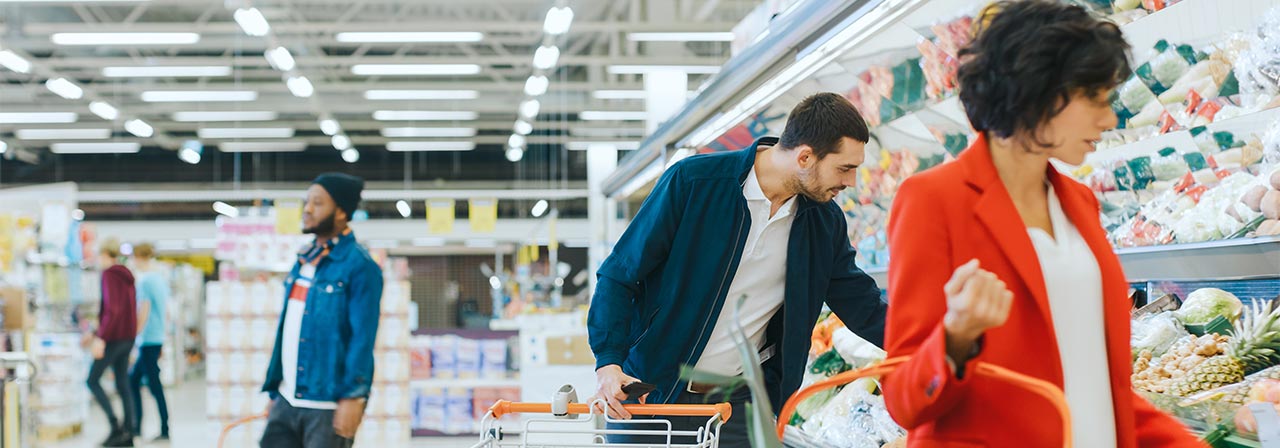Grocers open new stores and experiment with formats
Grocers enjoyed strong growth since the pandemic. Despite some headwinds, supermarket chains continued to expand in 2022.
- Nicolas Lau
I was so used to seeing prices being marked up I almost cried from happiness when Costco’s CEO, Craig Jelinek, responded “no” when asked if he would raise prices on their food court hot dogs. Inflation has not only affected consumers, but grocers as well. To combat these headwinds, grocers have focused on boosting private label brands, experimenting with new store formats, and expanding to new locations.
ALDI and southern regional grocers make noise
Aldi is once again the leader of new store openings for the third consecutive year. It opened 87 new stores totaling nearly 1.87 million square feet of new space. The expansion focused predominantly on the Southeast and Gulf Coast, with 22 new locations across the region. Meanwhile, southern regional grocers, Publix and HEB, also displayed significant growth in 2022. Publix added roughly 1.2 million square feet of space predominantly throughout the southern region. The retailer made entered the Kentucky market with the opening of three new stores, with plans for a fourth in 2024. HEB added roughly 1.2 million square feet of space in the form of 12 new stores. The Texas favorite had the most foot traffic of all grocers in the Texas market.
Private Label Brands are a priority
Shoppers felt the impacts of rising inflation throughout 2022. Rising costs have redirected many consumers, including mid- and higher-income shoppers, to prioritize products with value over brand. As a result, private label brands continue to be a priority for many grocery retailers. Kroger reported a 10.2 percent increase in private label brand sales in Q2 and announced a new budget-priced brand called Smart Way. Refining product attributes, structuring brand tiers, promoting consumer awareness, and redesigning packaging are all implementations that grocers have used to propel private label growth.
Instant grocery service experience market correction
2021 was a period of exuberant expansion for several delivery startups and micro-fulfillment companies. These “ghost grocers” – which include Gopuff, Buyk, and Fridge No More - offered the ability to fulfill grocery delivery orders in less than 15 minutes by utilizing micro-warehouses stocked with convenience-based consumables and other essential products. Despite ultrafast delivery raking large amounts of venture capital investment, 2022 was a tough year as many of these companies are now on shaky ground.
Buyk filed for Chapter 11 bankruptcy in March 2022, ending operations in 39 stores in Chicago and New York City. Meanwhile, Jokr shored up its U.S. operations and Gopuff scaled back warehouse footprints.
